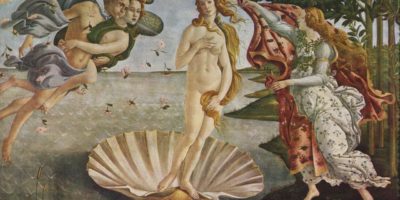10 Fascinating Facts About the Magi In The Bible
Welcome, inquisitive minds, to a captivating voyage into biblical mysteries with Brian, your qualified Discover Walks guide. Today, we explore the fascinating attraction of the Magi – those enigmatic beings woven into the tapestry of biblical history. Be prepared for awe-inspiring insights that transcend time as we go through the holy passageways.
Did you realize that these ancient magicians were more than just gift-givers? Join me as we investigate ten amazing facts that will challenge your assumptions and create a spark of curiosity inside you. Are you ready to solve the ancient riddles and discover the Magi’s secrets? Join me on a quest for wisdom as we uncover the unseen stories of these biblical enigmas.
1. The Magi hailed from different regions

Photo by Marcel Eberle on Unsplash
The Magi, also known as the Wise Men or the Three Kings, appeared from various parts of the ancient globe, indicating a worldwide nexus of learning. Their enigmatic trip, long thought to have begun in the East, is steeped in the rich tapestry of Babylonian or Persian countries.
This cultural mingling emphasizes the worldwide nature of their search for the unborn Messiah. The Magi’s different beginnings became a tribute to the inclusive aspect of the divine narrative as they proceeded on a celestial-guided quest, weaving together threads of wisdom from far places into the tapestry of the Christmas tale.
2. The Magi were guided by a star of unparalleled brilliance
The Magi were led to the newborn Messiah by an awe-inspiring celestial phenomenon—a light of extraordinary brilliance that lit up the night sky. This bright heavenly beacon served as their guiding light, beyond the limits of terrestrial navigation. This star guide’s importance was deep, indicating supernatural intervention and the fulfilment of ancient predictions.
The Magi followed this celestial compass with unshakable resolve over deserts and faraway nations, highlighting the remarkable nature of the momentous event that awaited them—the revelation of the promised Savior, bathed in the heavenly brilliance of the guiding star.
3. The iconic gifts of gold, frankincense, and myrrh carried profound symbolic meanings

Photo by Alexander Grey on Unsplash
The Magi’s gifts of gold, frankincense, and myrrh were more than just material presents; each had significant symbolic weight. Gold, a valuable metal, represented Jesus’ status as a king, indicating his royal ancestry and sovereign authority. Frankincense, a fragrant substance used in worship, symbolized Jesus‘ divinity, emphasizing his sacred and transcendent nature.
Myrrh, a fragrant substance linked with funeral ceremonies, foretold the sacrifice route ahead, pointing at the Messiah’s life’s redeeming goal. These spiritually charged presents expressed the Magi’s profound awareness of the exceptional infant they had travelled so far to honour.
4. The Magi were skilled astronomers and astrologers
The Magi, famed for their wisdom, were skilled astronomers and astrologers, adeptly linking the worlds of science and spirituality. Their voyage to worship the newborn Messiah was guided not just by faith, but also by a thorough knowledge of cosmic occurrences. They were masters of the night sky, interpreting star language to reveal the importance of future events.
The Magi flawlessly merged scientific accuracy with spiritual intuition in their celestial navigation, exemplifying a peaceful confluence of disciplines. Their appearance at the nativity scene highlighted the fundamental connection between the heavenly regions and the earthly story, serving as a celestial witness to the unfolding divine purpose.
5. The Magi’s journey has left an indelible mark on Christmas traditions worldwide

Photo by S&B Vonlanthen on Unsplash
The Magi’s epic trip has left an everlasting impression on Christmas celebrations across the world. Their involvement in nativity scenes and retellings crosses ethnic barriers, emphasizing the biblical narrative’s global attractiveness. Across civilizations, the Wise Men represent the universal expectation of a heavenly presence during the holiday season.
The Magi reflect the societal amazement and devotion surrounding Jesus’ birth, whether in spectacular displays or simple reenactments. Their cultural significance goes beyond religious domains, smoothly weaving into the fabric of worldwide festivities and connecting people in a common appreciation for the timeless story of the Magi’s trek to see the advent of redemption.
6. The Magi’s precise identities and numbers remain ambiguous
The historical heritage of the Magi is veiled in uncertainty, a mystery that interests both experts and seekers. Though the Bible provides some insight into their voyage, the actual identity and number of Wise Men remain a mystery. Early Christian traditions, motivated by the three presents presented—gold, frankincense, and myrrh—propose the concept of three Magi, however biblical narratives do not specify their exact number.
This historical riddle inspires reflection. Thus, we are allowed to appreciate the ongoing fascination of the Magi’s story while noting the gaps that allow for interpretation and giving a dimension of mystery to their essential part in the nativity myth.
7. The Magi’s inquiry about the newborn King troubled King Herod
The Magi’s investigation into the birth of a new monarch with Jesus Christ as the ruler sent shockwaves through the political landscape, upsetting monarch Herod and precipitating the horrific Massacre of the Innocents. Fearing for his power, Herod ordered the massacre of children in Bethlehem to remove any prospective rivals.
This bleak episode highlighted the tremendous political tensions surrounding Jesus’ advent, emphasizing the perceived danger to established power systems. Unknowingly, the Magi became catalysts in a political drama, their quest for the divine mingling with the harsh realities of worldly power and the terrible fate of the innocent.
8. The Magi’s encounter with the Christ child was more than a historical event

Photo by Birmingham Museums Trust on Unsplash
The Magi’s meeting with the newborn Christ transcends historical records, encapsulating a deep spiritual epiphany. Their presence symbolizes the revelation of God‘s redemption to all, not just the selected few, breaking down barriers of race and custom. This watershed event underscored the divine plan’s inclusion, expanding the possibility of redemption beyond conventional limits.
The Magi, as representatives of the Gentiles, showed the entire breadth of God’s kindness, promoting a message of spiritual equality and unity. Their trip exemplifies the vastness of divine love, stretching out to embrace those who seek the light of redemption.
9. The Magi’s visit didn’t occur immediately after Jesus’ birth
Contrary to common belief, the Magi’s visit did not occur immediately after the birth of Jesus. Instead, their voyage took months, indicating a careful journey rather than a rushed pilgrimage. This detailed historical context enriches their story, depicting the Magi as patient searchers guided by supernatural insight.
Their arrival at the nativity scene becomes a climactic moment, the culmination of months of hard work. This time component encourages contemplation on the Magi’s Odyssey’s persistent devotion and intense expectation, highlighting that their arrival at the manger was the consequence of a deliberate and enduring quest rather than a quick response to a heavenly sign.
10. The Magi’s role echoes the profound impact of their homage to the infant Christ

Statues of Three Wise Men in the Philippines 07.jpg SwarmCheng, CC BY-SA 4.0, via Wikimedia Commons
Despite being referenced just briefly, the Magi’s legacy reverberates throughout the New Testament, leaving a lasting stamp on the sacred tale. Their adoration for the child Christ transcends a single event, resounding throughout the Gospels and beyond.
Themes of redemption and the universality of God‘s grace are intertwined with references to their talents and symbolic importance. With their brief but important role, the Magi become indicative of the enduring significance that little acts of devotion may have in the vast fabric of divine revelation, their presence reverberating as an eternal witness to the awareness of the divine in the most humble of beginnings.
The Magi stood as heavenly navigators in the fabric of biblical miracles, their gifts resonating through the ages. Their voyage reveals not just the birth of a King, but also a cosmic message of inclusion, mystery, and unwavering commitment. The heritage of the Magi, like a guiding beacon, continues to illumine hearts throughout the years.
Planning a trip to Paris ? Get ready !
These are Amazon’s best-selling travel products that you may need for coming to Paris.
Bookstore
- The best travel book : Rick Steves – Paris 2023 – Learn more here
- Fodor’s Paris 2024 – Learn more here
Travel Gear
- Venture Pal Lightweight Backpack – Learn more here
- Samsonite Winfield 2 28″ Luggage – Learn more here
- Swig Savvy’s Stainless Steel Insulated Water Bottle – Learn more here
Check Amazon’s best-seller list for the most popular travel accessories. We sometimes read this list just to find out what new travel products people are buying.









